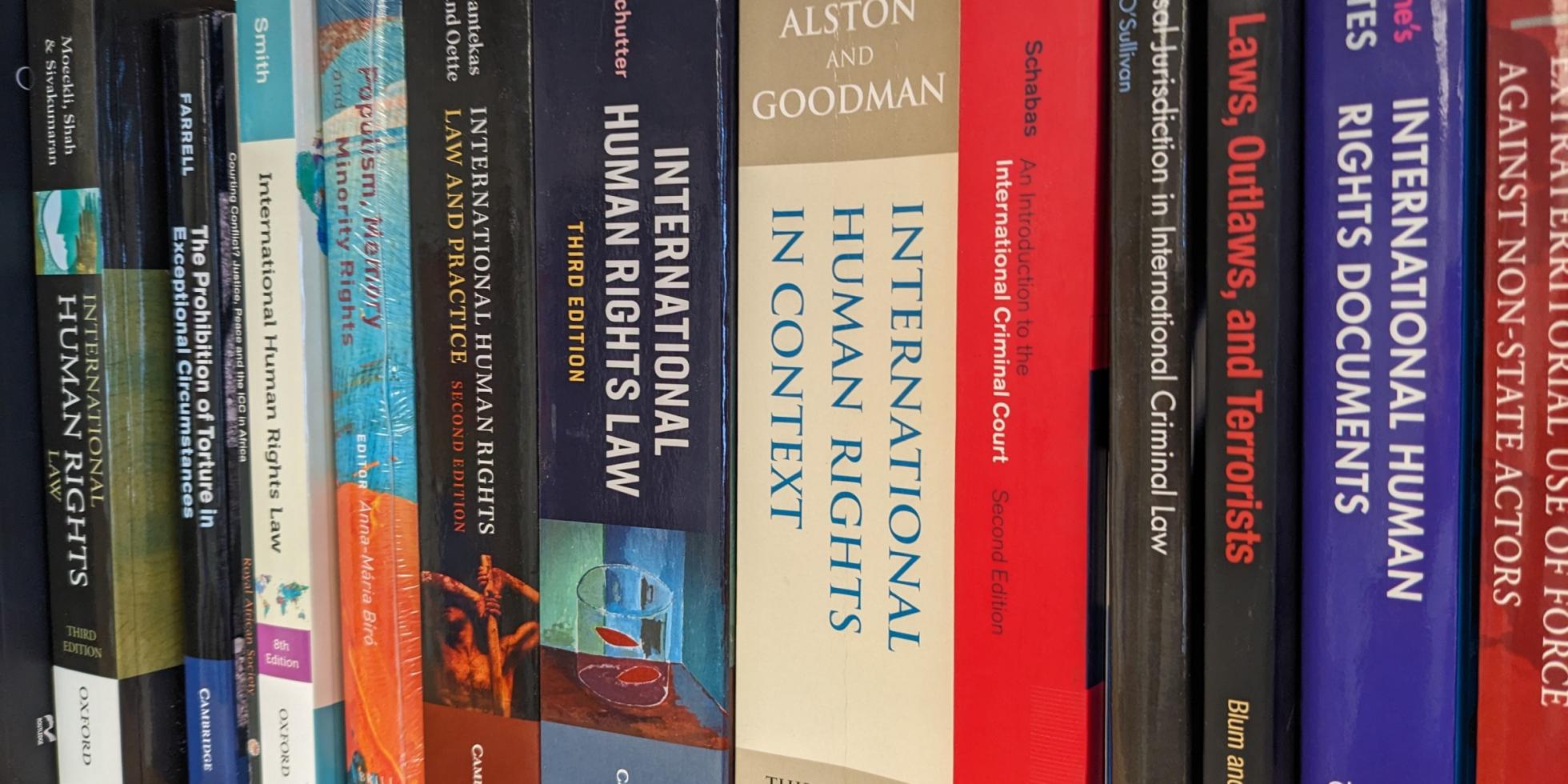The virtual human rights library brings together resources from multiple libraries and information services, both internal and external, to create an online hub dedicated to the study of human rights. This curation is unique in its interdisciplinary concerns and focuses on writings and research from social sciences, humanities, and law.
The virtual library is continually updated with the latest academic research in issue areas, as well as with relevant films, recorded conversations, and other forms of media.
Please Note:
The Virtual Library is usable by all visitors, but the hyperlinks to materials listed are for UChicago community members with a CNet ID and password.
Please direct feedback and suggestions to Kathleen Cavanaugh.
For technical assistance, email pozenhumanrights @ uchicago.edu.
Searchable Database
Click into the dropdowns to select the disciplines, keywords, and media type for your search, and then hit "Apply."
Impossible Subjects: Illegal Aliens and the Making of Modern America
This book traces the origins of the illegal alien in American law and society, explaining why and how illegal migration became the central problem in U.S. immigration policy--a process that profoundly shaped ideas and practices about citizenship, race, and state...
Limits of Citizenship: Migrants and Postnational Membership in Europe
In many Western countries, rights that once belonged solely to citizens are being extended to immigrants, a trend that challenges the nature and basis of citizenship at a time when nation-states are fortifying their boundaries through restirictive border controls and...
Making the Modern Slum: The Power of Capital in Colonial Bombay
In the late nineteenth and early twentieth centuries, Bombay was beset by crises such as famine and plague. Yet, rather than halting the flow of capital, these crises served to secure it. In colonial Bombay, capitalists and governors, Indian and...
New Masters, New Servants: Migration, Development, and Women Workers in China
On March 9, 1996, tens of thousands of readers of a daily newspaper in China’s Anhui province saw a photograph of two young women at a local long-distance bus station. Dressed in fashionable new winter coats and carrying luggage printed...
Objects of War: The Material Culture of Conflict and Displacement
Historians have become increasingly interested in material culture as both a category of analysis and as a teaching tool. And yet the profession tends to be suspicious of things; words are its stock-in-trade. What new insights can historians gain about...
Pachinko
In this gorgeous, page-turning saga, four generations of a poor Korean immigrant family fight to control their destiny in 20th-century Japan, exiled from a home they never knew.
In the early 1900s, teenaged Sunja, the adored daughter of a crippled...
Revoking Citizenship : Expatriation in America from the Colonial Era to the War on Terror
Expatriation, or the stripping away citizenship and all the rights that come with it, is usually associated with despotic and totalitarian regimes. The imagery of mass expulsion of once integral members of the community is associated with civil wars, ethnic...
Tea and Solidarity: Tamil Women and Work in Postwar Sri Lanka
Beyond nostalgic tea industry ads romanticizing colonial Ceylon and the impoverished conditions that beleaguer Tamil tea workers are the stories of the women, men, and children who have built their families and lives in line houses on tea plantations since...
The Great Departure: Mass Migration from Eastern Europe and the Making of the Free World
Between 1846 and 1940, more than 50 million Europeans moved to the Americas in one of the largest migrations of human history, emptying out villages and irrevocably changing both their new homes and the ones they left behind. With a...
The Proletarian Gamble: Korean Workers in Interwar Japan
Koreans constituted the largest colonial labor force in imperial Japan during the 1920s and 1930s. Caught between the Scylla of agricultural destitution in Korea and the Charybdis of industrial depression in Japan, migrant Korean peasants arrived on Japanese soil amid...

